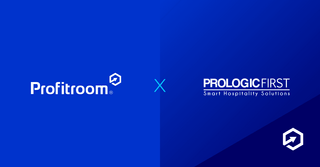What should Hoteliers be planning in 2021?
Date
23.11.20
Type
Articles
Category
Marketing ,
Revenue

2021 is a pivotal year for the hospitality industry with hotels entering the year facing increased coronavirus restrictions. Now, more than ever, hotels need to be doing what they can to maximise revenues and ensure they are taking advantage of all the elements at their disposal.
Much of this centres on a creative and imaginative approach to your offering – marketing your strong points and projecting the right message to your target audience to drive demand.
But how is this done? Well, there are many things hotels can be doing in 2021.
Personalisation
More and more, guests are looking for a personalised experience – so tailor packages to suit certain demographics or specific segments within your target market. Make the most of onsite amenities or provide a unique experience partnering with a local business who share a similar audience. Help guests envisage a stay with you through ‘storytelling’ – using images, videos and compelling copy to encourage them to book. Make your hotel appeal for the time of year.

Invest in a good CRM
A CRM is more than just a database, it’s a powerful revenue management tool that enables the creation of a uniform and consistent pricing strategy that you can specifically target to reach core audiences. Hotels who engage with their audience and existing customer base enjoy better return business.
Guest Segmentation
Segmenting your marketing ensures the messaging is hitting the right spot. Also, bear in mind your hotel target audience may evolve and develop over the year due to the nature of seasonality, so be sure to regularly review it.
And don’t forget your domestic market. Especially now, given the ongoing travel restrictions. Make your marketing appeal to a home-grown, or even local, audience, as, in the current climate, they’re even more likely to engage locally.
Upgrade the early birds
Hotels need to revisit and revamp existing offers and packages. ‘Book early’ promotions, with tailored copy and imagery matching the time of year are a great way to tempt early bird bookers – with free room upgrades an easy example of things that can be done to entice them.
Shine your website and make it mobile first
You need to make sure your website matches your marketing material (and offers online booking). You should be making your website work best on mobile, not merely make it functional. Statistics suggest 70% of all last-minute hotel bookings are made via mobile – so it’s a hugely important platform to target. Don’t neglect it.
Offer a conversion-led landing page
Creating a specific landing page helps highlight your hotel’s seasonal qualities. Making it easily accessible allows browsers to appreciate the finer details having been led there by marketing. But make sure it’s both compelling and actionable. Tailor copy to ensure it relates and appeals to the guests you’re trying to target.
Retarget abandoned bookings
The abandonment rate for hotel bookings in 2019 was an astonishing 84.63%. This gives you the opportunity to create a hugely impactful retargeting campaign. If someone is intrigued enough to get into the booking engine before leaving, then there’s an excellent chance of tempting them back in.

Don’t neglect metasearch
Metasearch engines, such as Google Hotel Ads, TripAdvisor and Trivago, aggregate information on prices and availability, making them popular with consumers thanks to easy comparisons, which puts you in front of lots of prospect guests. They also don’t charge the hefty commission fees of Online Travel Agents – further enhancing their value and removing OTA reliance.
Blog about it
Blogging helps to improve your hotel’s search rankings. Create destination based blog content, talking up the wonderful seasonal things to do in the local area. Sell your location and position your hotel as the best place from which to enjoy it.
COVID safety - Reassurance
Promote your COVID safety measures to improve consumer confidence and make it clear you take your responsibility to guests’ safety seriously. People are keener than ever for a break away – so let them know your hotel is safe.


